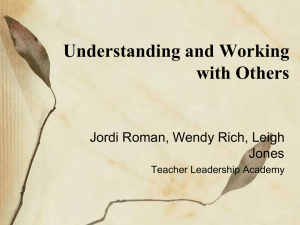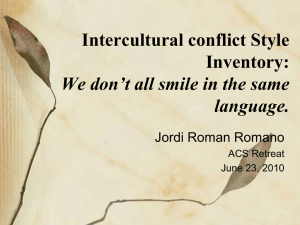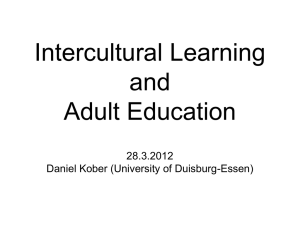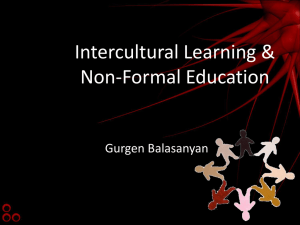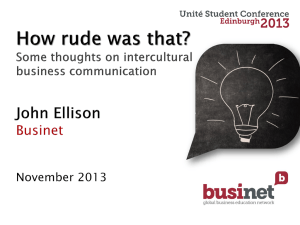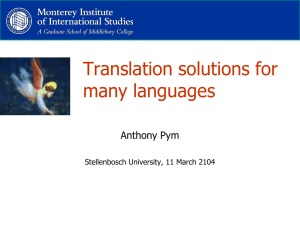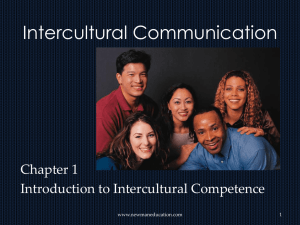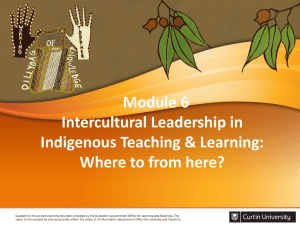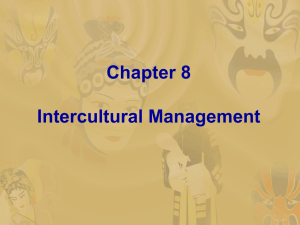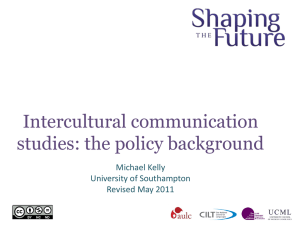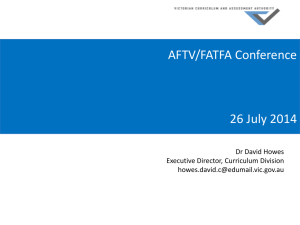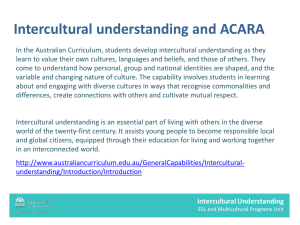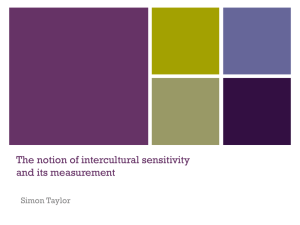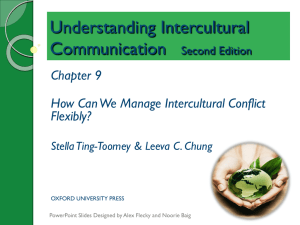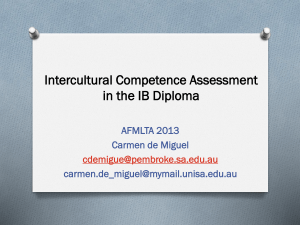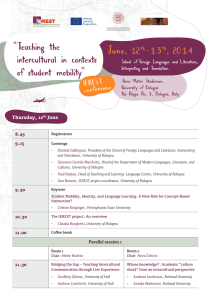Intercultural Education Strategy 2010-2015
advertisement
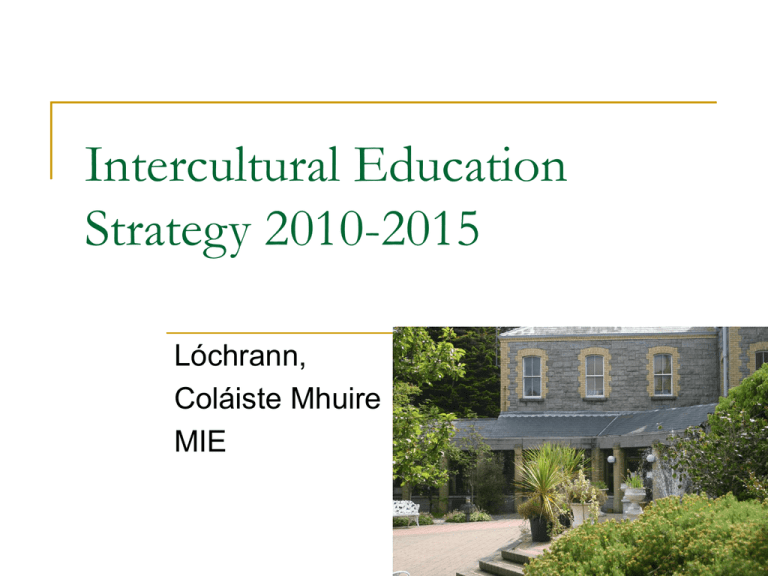
Intercultural Education Strategy 2010-2015 Lóchrann, Coláiste Mhuire MIE Lóchrann: Centre for Intercultural Education, Marino Established in 2007 Aim is to ‘enhance the development of best practice in intercultural education in Irish schools, through its engagement in teaching, learning and research’ www.mie.ie Work of Lóchrann 1. 2. 3. Complements the principles and components of the IES, in relation to the following three goals in particular: Enable the adoption of a whole institution approach to creating an intercultural learning environment Build the capacity of education providers to develop an intercultural learning environment Support students to become proficient in the language of instruction Lóchrann initiatives: CPD On-line courses in ‘Teaching English as an Additional Language’ (2007-2009 in association with the INTO): c.1,800 teachers have participated to date (to Sept 2010) Post Graduate Diploma in Intercultural Education launched in 2009, accredited by Trinity; will be offered as a Masters in 2011: four modules – school diversity & intercultural education, EAL, religious diversity, and school-based research project The adoption of a whole institution approach to creating an intercultural learning environment Actively facilitate groups of staff from individual schools to undertake PG Diploma, recognising the potential impact of a cluster of teachers in one school embarking on this learning together Support students to become proficient in the language of instruction Recognising that language proficiency is central to academic progress and critical to success in Irish society Build the capacity of education providers to develop an intercultural learning environment Emphasising link between language and identity: ‘language both forms and is a symbol of our identity’ (Skutnabb-Kangas, 2000) Promoting sociocultural approaches to language and literacy: recognising prior learning, seeing children’s lives & experience as ‘entry points’, valuing first language and culture and acknowledging these as central to learning (IES 5.3.2) Comprehensive approach to intercultural education Responses to 2008 Green Paper placed intercultural education behind language learning, partnership with parents and teacher education – Lóchrann philosophy would concur with the need to combine these factors to create a comprehensive Strategy for intercultural education (IES 4.3.3) Post Graduate qualification in EAL (IES 6.3.2) Recommend that this qualification be offered in a holistic way, with language seen in its sociocultural context rather than as a collection of ‘skills’ Lóchrann initiatives: Initial teacher education Elective course on EAL offered since 2007 Opportunity for student teachers to specialise, c.100 enrolled to date From September 2010: all Year 2 students now receive a year-long course in Language Studies Will provide all B.Ed students with comprehensive preparation in the principles and practice of teaching primary school children from minority language backgrounds All educators have a responsibility as teachers of language (IES 5.3.4) For the future… PG Diploma / Masters in Intercultural Education: creating network of educators with competence & theoretical understanding of education in diverse settings, who will contribute to development of research in this field Need to continue interrogating key ideas such as ‘intercultural’ education, its meaning, its distinctiveness from ‘multiculturalism’, and how it translates into practice

